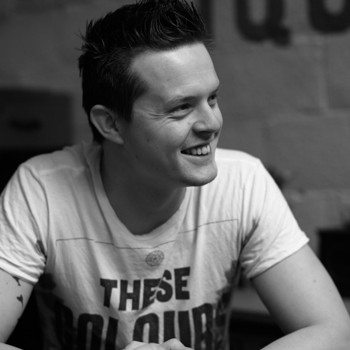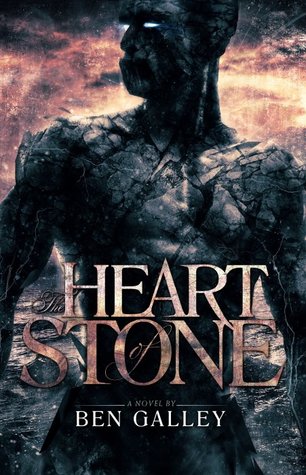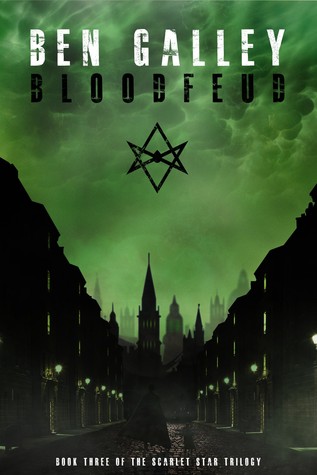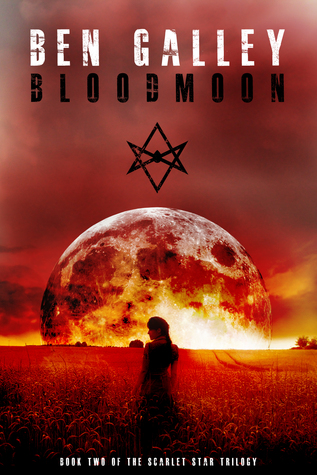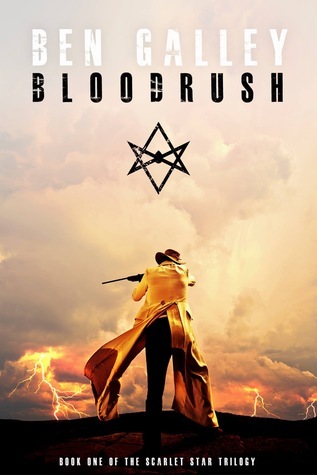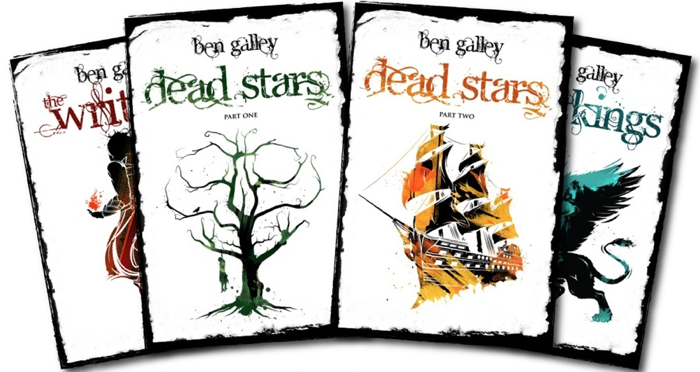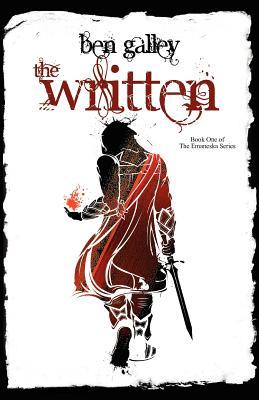Author Spotlight: Ben Galley
Currently hailing from Victoria in Canada, Ben Galley is the author behind the gritty Emaneska Series, the western fantasy Scarlet Star Trilogy, and The Heart of Stone, which won Best Self-Published Fantasy novel in the 2017 Booknest Fantasy Awards.
Aside from writing and dreaming up lies to tell his readers, Ben works as a self-publishing and marketing consultant, helping fellow authors from all over the world to publish and sell books.Ben can be found attempting to be witty on Twitter or vlogging on YouTube @BenGalley, or loitering on Facebook and Instagram @BenGalleyAuthor.
I was browsing a used bookstore very recently and came across a chunky tome called I Contain Multitudes by Ed Yong. It’s non-fiction and about the world of microbes and bacteria — how our bodies work with them to fight disease, repair damage, and generally survive this little ball of rock we live on. Ed explains complex ideas effortlessly and in a creative, jolly way. Even though it was nonfiction, the microbial world is just as dark and strange as the ones in the fantasy novels I normally read, and it’s definitely got me thinking about some new ideas for future books!
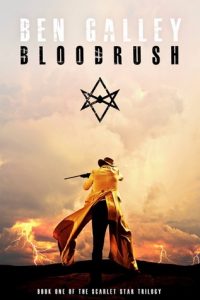 That sounds fascinating! Okay, time to escalate things: reality warps and you suddenly find yourself leading a D&D-style party through a monster-infested dungeon. What character class are you, and what’s your weapon of choice?
That sounds fascinating! Okay, time to escalate things: reality warps and you suddenly find yourself leading a D&D-style party through a monster-infested dungeon. What character class are you, and what’s your weapon of choice?
I’d have to follow my calling of being a rogue, ready to loot the dungeon while picking off monsters from the shadows with the Longbow of Highly Unfair Precision.
Ha! And when you’re not sneaking through dungeons, do you prefer to type or to hand-write? Why?
When I’m not busy betrayi—loyally assisting my fellow party members, I prefer to type. I can type a lot faster than I can write with a pen, and the words tend to flow a lot easier when I’m not worrying about legibility or cramp. Laptops are also amazingly convenient, as Google and Wikipedia are right there, as well as any past material or notes. My handwriting also looks like that of a pigeon with caffeine withdrawal, so I abhor the idea of typing up my rambling, peering through line after slanted, squiggly line. Hats off to those who do though.
And how do you like to work – in silence, with music, or serenaded by the damned souls of a thousand dead shrimps?
Although the dead shrimp choir sounds excellent, I usually have a variety of music playing. I have an eclectic taste but it leans towards the heavy, frenetic side, ordinarily metal or some kind of rock. I use music as a fuel to keep my energy and attitude up, and also as my own soundtrack to influence certain scenes, such as a fight or a reflective, inner monologue. I use a lot of film OSTs too, as they’re atmospheric and lyric-less to help concentration. So, I’m pretty normal compared to most writers, except that I’m usually sitting in a darkened room atop a towering throne of cat-skulls.
Are you an architect or a gardener? A plotter or a pantser? D’you write in your underwear, or in a deep-sea diver’s suit? Tell us something unusual about your writing method!
I’m an architect and a plotter, but in a slightly looser sense. I have an idea, I flesh it out, then I flesh it out several more times until I have a reasonably detailed chapter-by-chapter structure. I then write character backstories, descriptions, and do a butt-tonne of world-building before I start the notorious first line. However, these people (or golems or dragons or flying donkeys) that I put on the page immediately start to come up with their own ideas, and most often, they’re better than mine. So I let them lead, the story deepens, and I adjust my plan as I need to. The book more or less gets the ending I’d envisaged, but it usually takes a more interesting, meaningful route. And as far as unusual methods goes, I sometimes do the voices of characters out loud so I can get inflections right. That’s always fun when you have headphones on and forget you have company.
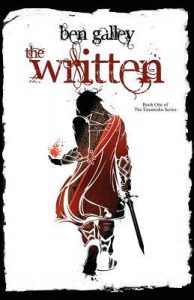 What are your most significant non-book fantasy influences?
What are your most significant non-book fantasy influences?
I’m an avid cine/videophile, so a great many films and TV shows have influenced my ideas, worlds, and characters. Fantasy and sci-fi are my preferred genres, but almost anything I see on-screen has been known to spark a new concept. Be it a single shot, a vivid section of dialogue, or the swooping plot of a classic saga, I usually glean some kind of lesson. I think that’s why I find myself writing as though I’m directing a film set or a camera angle, or why I have an obsession with multiple POVs, narrators, and a wealth of description and scene-setting. Other than that, history and mythology are huge influences, and I find myself borrowing a lot from both of them.
Speaking of which, what was the last thing you watched on TV and why did you choose to watch it?
I’ve recently been rewatching The Office (US version), and I watched it because Michael Scott is probably one of the best characters ever created. I also wanted something light-hearted after a day of editing some frankly grim AF scenes for my new trilogy. Nothing like some painfully awkward Steve Carell to take a load off.
The world shifts, and you find yourself with an extra day on your hands during which you’re not allowed to write or otherwise do any work. How do you choose to spend the day?
Since I moved to Canada last spring, I’ve been developing a plan to befriend the otters that live in the harbour. Through a complex process involving frozen shrimp and Bryan Adams albums, I reckon I could do it. I say befriend. “Train” is more accurate. I have a theory they could power a small craft as well as act as an amphibious strike force.
Aside from otter-wrangling, I’m a big fan of the wilderness out here, so given the gift of a day, I would hopefully spend it exploring, surfing/snowboarding, or sailing.
If you could choose one punctuation mark to be made illegal, which would it be and why?
There’s a lot of hatred in the world for the semicolon, but I find myself loathing the comma. They’re like rodents; you’re never less than twenty words away from one, and oh, how they are mercurial bastards. If they’re not scuttling in every moment your fingers pause over the keyboard, they’re swaggering in, proclaiming some grammatical rule. I swear I spend half the editing stages hunting them down only to distribute them elsewhere, spending hours wondering how on earth I put a comma here, or whether one should go there. If they can’t be made illegal, then they should be slapped with a hefty fine for being a nuisance and a waste of time.
In no more than three sentences, tell us a little something about your current work in progress!
I’m currently putting the finishing touches to a new series called the Chasing Graves Trilogy. The series is set in an pseudo-Egyptian world that revolves around the enslavement of ghosts, and follows a master thief in his hunt for justice and freedom. It’s a grim yet darkly humorous tale and it’ll be out this December!
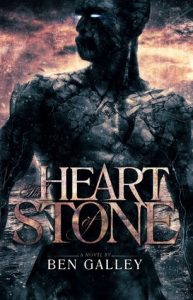
If you could co-write or co-create a series (like The Expanse, or the Malazan Book of the Fallen), who would you choose to work with and why?
I would jump at the chance to work with Philip Pullman. He’s always been an idol of mine ever since I first picked up Northern Lights/Golden Compass, and I’ve always thought the worlds within His Dark Materials have so much potential for excellent spin-offs, sequels or prequels. It would be an absolute pleasure to work with somebody with his calibre of imagination.
What’s the most (and/or least) helpful piece of writing advice you’ve ever received?
I’ll give you one of each! The most helpful was Neil Gaiman’s advice of, “Just write. Many writers have a vague hope that elves will come in the night and finish any stories for you. They won’t.” A lot of Gaiman’s tips are centred around the concept of just getting on with it. Write. Practice. Write. It’s something that’s been instilled in me since the start and done me well.
The worst piece of advice came from a family member, who said something along the lines of “you should get a real career, because writing’s not ever going to pay much.” I like to think of that one sometimes and laugh.
If you could visit any country at any point in history, where/when would you go, and why?
I’m always torn between the Aztec or Mayan empire or Prohibition-era New York. The former because their unique cultures were cruelly obliterated from history, and it would be incredible to see them at their peak, unspoiled, and naturally from a distance that didn’t get me sacrificed to a sun-god. The latter because it was only in the 1920s that you could be a booze-runner and look fresh to death while doing it.
Every writer encounters stumbling blocks, be it a difficult chapter, challenging subject matter or just starting a new project. How do you motivate yourself on days when you don’t want to write?
I try to stay away from writing when it feels too much like a chore. That way it stays a pleasure and I’m excited every time I sit down to write. However, that’s hard to keep up day after day, and so some days I do stare at the laptop and groan. Thankfully, such days are rare as having a plan keeps me inspired, and I’m always looking forward to getting into the next scene. I find not knowing where the characters or I are going blocks me more than most other things. If I’m blocked, I rejig my plan and keep moving. That’s why I’m also not opposed to leaving sections for later if they’re proving tricky at the time. I don’t edit as I go either, and leave all of that for the second draft. That helps me keep my pace up and stay in flow state where I can focus on putting the story first and perfection later.
Music is also a big help. A blast of Killswitch Engage is likely to motivate most people. Soft to medium targets also help, as they provide a finish-line to aim for. It can often be as simple as clearing my to-do list of other chores, or making sure I’m hydrated, or comfy. Above all, don’t take it too seriously.
Tell us about a book that’s excellent, but underappreciated or obscure.
This might sound strange, but I think Artemis Fowl goes unnoticed by a lot of fantasy fans, perhaps due to the age group it’s aimed at. While it is children’s fiction and overall light-hearted, like Disney or Pixar, there’s an underlying tone of seriousness and emotion in it for older readers. Artemis Fowl himself is a fantastic villain, and I recently reread the series and had forgotten how much mythology had been packed into it. Each character has sufficient depth, the plot itself is inventive and enjoyable, and the concept behind the world highly interesting. Plus, if you get the right version it has the shiniest cover.
Finally, would you be so kind as to dazzle us with what we like to call a ‘shark elevator pitch’? (It’s exactly the same as an elevator pitch, but with sharks.) (Well, one shark. Which, by the way, is currently picking between its rows of teeth to try and dislodge the remains of the last author who stepped onto its elevator.)
Ahem. So: why should readers check out your work? A shark elevator pitch of your own books in no more than three sentences – go!
If you’re a fan of epic, character-driven fantasy books with immersive worlds, then I’ve got a few suggestions for you. There’s my Nordic fantasy Emaneska Series for those looking for magic and dragons, the weird west Scarlet Star Trilogy for a steampunk, alternate history vibe, or an award-winning grim standalone called The Heart of Stone.
Brilliant, Ben. Thanks again for joining us, and good luck with Chasing Graves!
Ben Galley is a self-publishing consultant and the author of the Emaneska series, the Scarlet Star trilogy, and the standalone Heart of Stone.

